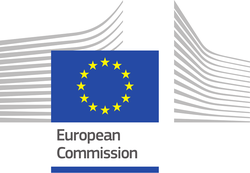
Jan. 12, 2018
By: Michael Feldman
 The European Commission (EC) has announced a financial framework for investing €1 billion in European supercomputers over the next two years. Under this framework, known as the EuroHPC Joint Undertaking, the European Union (EU) would contribute around €486 million, while the remainder would be supplied by EU member states and associated countries.
The European Commission (EC) has announced a financial framework for investing €1 billion in European supercomputers over the next two years. Under this framework, known as the EuroHPC Joint Undertaking, the European Union (EU) would contribute around €486 million, while the remainder would be supplied by EU member states and associated countries.
The goal is come up with €1 billion of public funding to be spent on supercomputing infrastructure over the next couple of years – until 2020. The hope is that private organizations with a stake in European HPC would also contribute money.
According to an article published in EU Reporter, the investment is “crucial for the EU’s competitiveness and independence in the data economy.” The article notes that European researchers and commercial users of HPC often do this type of work outside of Europe because there is not enough computational power in the region to support their demands. Among other problems this creates, this lack of independence threatens users’ data privacy, protection, and claims to ownership.
The EU Reporter write-up quotes Andrus Ansip, EC Vice President for the Digital Single Market, who lays out the rationale for the larger contribution from the EC. “Supercomputers are the engine to power the digital economy,” said Ansip. “It is a tough race and today the EU is lagging behind: we do not have any supercomputers in the world’s top-ten. With the EuroHPC initiative we want to give European researchers and companies world-leading supercomputer capacity by 2020 – to develop technologies such as artificial intelligence and build the future’s everyday applications in areas like health, security or engineering.”
The EuroHPC funding structure will be used for deployments of pre-exascale systems, as well as for development of technology that will go into subsequent European-built exascale systems. The latter are not scheduled to go into production until 2022 or 2023. The plan is to provide financial support in the form of procurement money and research grants.
Although the €1 billion investment is only designed to extend out to 2020, the EuroHPC Joint Undertaking is supposed to remain operational until the end of 2026, which presumably will require another round of investments.
The initial €486 million to be contributed by the EC represents a significant increase over the amount that was previously being considered. “Before the new structure was put in place, the Commission was effectively limited to contributing 20 percent to HPC initiatives undertaken with member states,” noted Steve Conway, Research Vice President, Hyperion Research. “Our progress report on the European HPC strategy, done for the Commission, contained a related recommendation.”
The report he’s referring to is a study titled High Performance Computing in the EU: Progress on the Implementation of the European HPC Strategy, which was published in 2015, when Hyperion Research was still operating under IDC. The report recommended that Europe should align its exascale efforts with those of the other major players, while also increasing the EC’s funding contribution. From the report's abstract:
“To achieve the goal of HPC leadership—meaning at minimum parity in HPC capabilities with the best in the world—Europe needs to acquire at least one exascale supercomputer in the same timeframe as the U.S., Japan and China. The current European HPC strategy provides no clear path for doing this. IDC recommends that Europe extends the end date for its HPC strategy from 2020 to 2022, to match the exascale time frames of the U.S., Japan and China, and that Europe plans to acquire two exascale systems, one of which stresses innovative European technologies (such as those being advanced within ETP4HPC). To amass the €1 billion-plus funding needed for the exascale supercomputers, the Member States must find a way to pool funding, and the European Commission must find a way to boost its contribution to the needed funding amount.”
The increased participation by the EC certainly seems to be in line with that analysis. More generally, the European Union now seems loathe to continue its second-tier status, especially given the rise of China as a major supercomputing power. And since HPC is increasing seen as a critical driver to economic performance and societal advancement, Europe has as much at stake in this regard as any other leading economy.
Such sentiments are now common with EU bureaucrats, as reflected by comments from Digital Economy and Society Commissioner Mariya Gabriel. “Supercomputers are already at the core of major advancements and innovations in many areas directly affecting the daily lives of European citizens,” said Gabriel, in response to the new EuroHPC framework. “They can help us to develop personalized medicine, save energy and fight against climate change more efficiently. A better European supercomputing infrastructure holds great potential for job creation and is a key factor for the digitization of industry and increasing the competitiveness of the European economy.”
